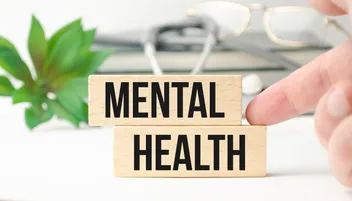Navigating life transitions can be overwhelming and emotionally taxing. Mental health training courses provide essential tools and strategies to build resilience, enhance emotional intelligence, and foster coping mechanisms during significant changes. These courses empower individuals to maintain mental well-being while adapting to new circumstances.
Understanding Life Transitions and Their Impact on Mental Health
Life transitions, whether planned or unexpected, can bring about significant stress. Changes like starting a new job, relocating, marriage, divorce, or retirement require emotional and psychological adjustments. Without proper support, these transitions may lead to anxiety, depression, or burnout.
Mental health training courses are designed to equip individuals with techniques to manage these challenges effectively. By focusing on emotional regulation, communication, and problem-solving skills, they create a solid foundation for navigating life’s unpredictable paths.
Benefits of Mental Health Training Courses
1. Building Emotional Resilience
Resilience is the ability to bounce back from adversity. Mental health training courses teach participants how to develop a positive mindset, manage stress, and remain optimistic even during challenging times.
2. Enhancing Emotional Intelligence
Understanding and managing emotions is critical during life transitions. These courses improve self-awareness, empathy, and interpersonal skills, enabling individuals to handle relationships and situations with greater confidence.
3. Developing Coping Mechanisms
Effective coping strategies are essential for reducing stress and anxiety. Participants learn techniques like mindfulness, relaxation exercises, and goal-setting to address emotional distress during transitions.
4. Promoting Mental Well-being
Mental health training courses prioritize overall well-being by addressing issues like sleep hygiene, nutrition, and physical activity, which play a significant role in mental health maintenance.
Key Components of Mental Health Training Courses
1. Stress Management Techniques
Participants are introduced to scientifically-backed methods to reduce stress, including breathing exercises, meditation, and time management strategies.
2. Cognitive Behavioral Therapy (CBT) Tools
CBT is a cornerstone of many mental health training programs. It helps individuals identify negative thought patterns and replace them with constructive ones.
3. Communication and Conflict Resolution
Effective communication is crucial during life transitions. Courses often include role-playing exercises to improve negotiation and conflict-resolution skills.
4. Self-Care Practices
From journaling to physical fitness, self-care practices are emphasized as integral to maintaining mental balance during change.
How Mental Health Training Courses Empower Individuals During Specific Life Transitions
1. Transitioning to a New Job
Starting a new role can be both exciting and nerve-wracking. Mental health training courses prepare individuals to handle workplace stress, build new relationships, and maintain work-life balance.
2. Coping with Loss
Whether it’s the loss of a loved one or a significant life change, these courses offer strategies for grief management, emotional expression, and moving forward positively.
3. Adjusting to Parenthood
Parenthood is a profound transition that brings joy and challenges. Mental health training courses help new parents manage stress, strengthen their relationship, and adapt to their new responsibilities.
4. Navigating Retirement
Retirement marks the end of a structured routine and the beginning of a new chapter. Courses guide retirees in finding purpose, staying socially connected, and maintaining mental sharpness.
How to Choose the Right Mental Health Training Course
Selecting the right course is essential to ensure it meets your specific needs. Consider the following factors:
1. Course Content
Look for courses that address your unique challenges, such as stress management or interpersonal skills.
2. Accreditation and Credibility
Choose courses offered by reputable organizations or professionals with certifications in mental health.
3. Flexibility
Online courses allow individuals to learn at their own pace, making it easier to integrate training into busy schedules.
4. Peer Support
Courses with group activities or forums provide opportunities to connect with others facing similar transitions.
Real-Life Success Stories from Mental Health Training Courses
1. Sarah’s Career Change Journey
Sarah transitioned from a corporate job to starting her own business. By enrolling in a mental health training course, she learned how to manage entrepreneurial stress, improve her decision-making skills, and stay motivated.
2. Tom’s Post-Retirement Fulfillment
After retiring, Tom felt lost and unproductive. A mental health training course helped him rediscover his passions, stay active, and build meaningful relationships in his community.
Conclusion: Embrace Change with Confidence
Mental health training courses offer invaluable support for navigating life transitions. They empower individuals to adapt, grow, and thrive during challenging times. Whether you’re starting a new chapter or recovering from a setback, these courses provide the tools needed to maintain mental well-being.
At Emcare, we are committed to promoting mental health awareness and providing resources for navigating life’s changes effectively.
For more information about technology visit Top news blog

